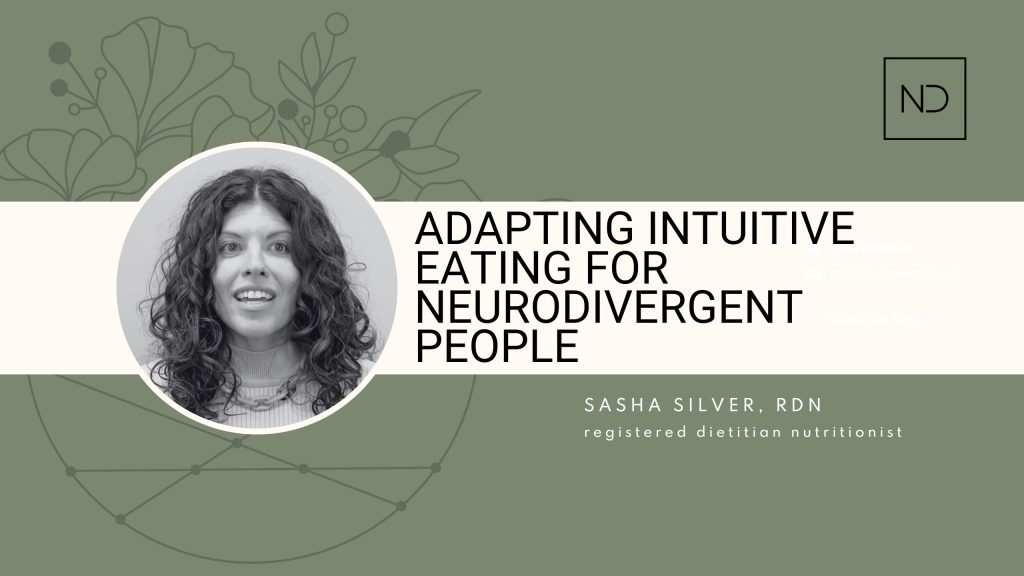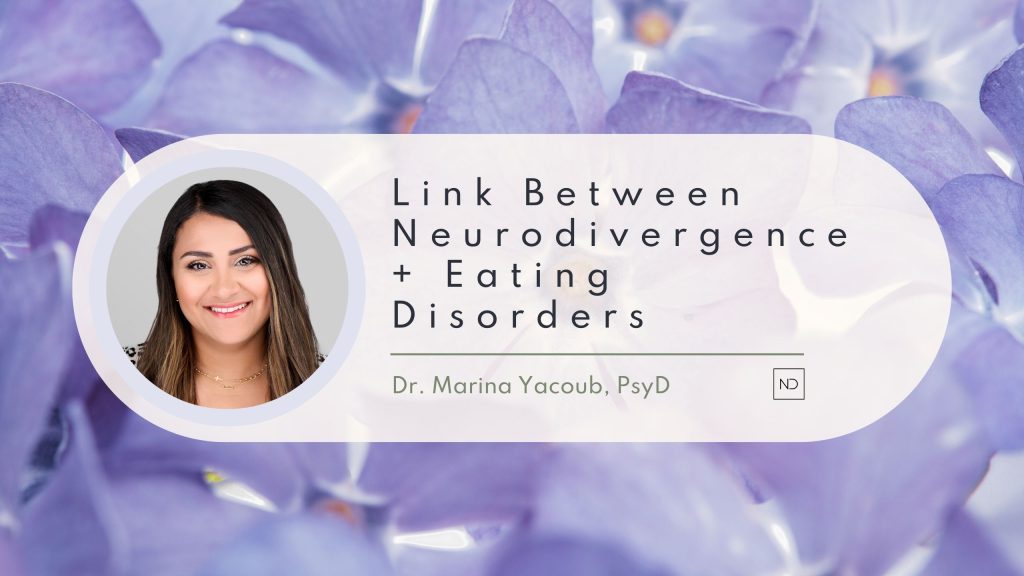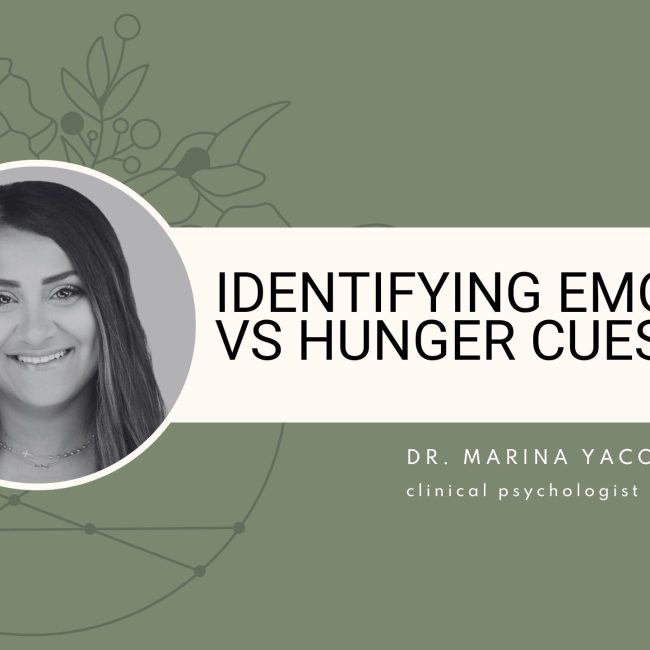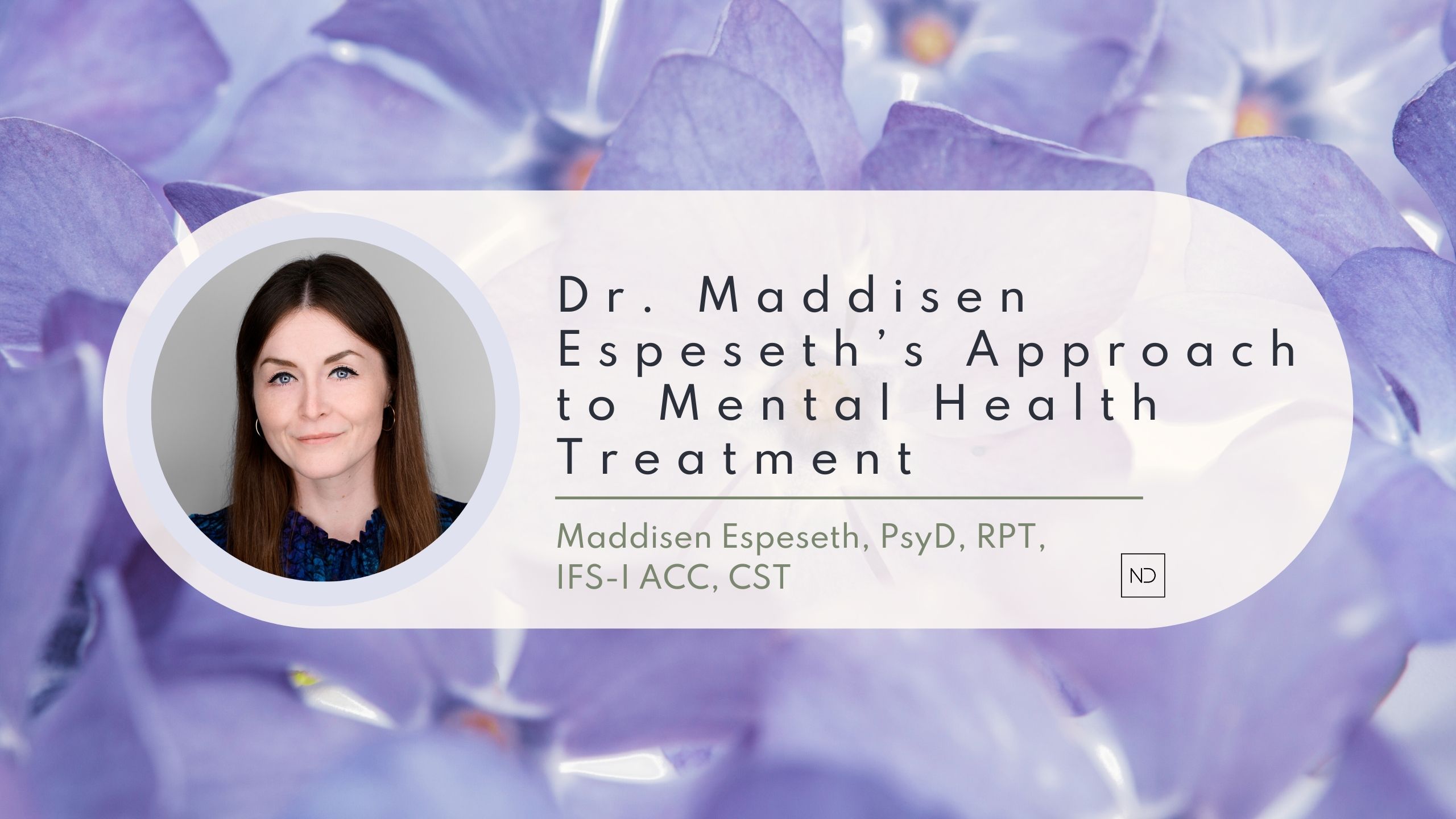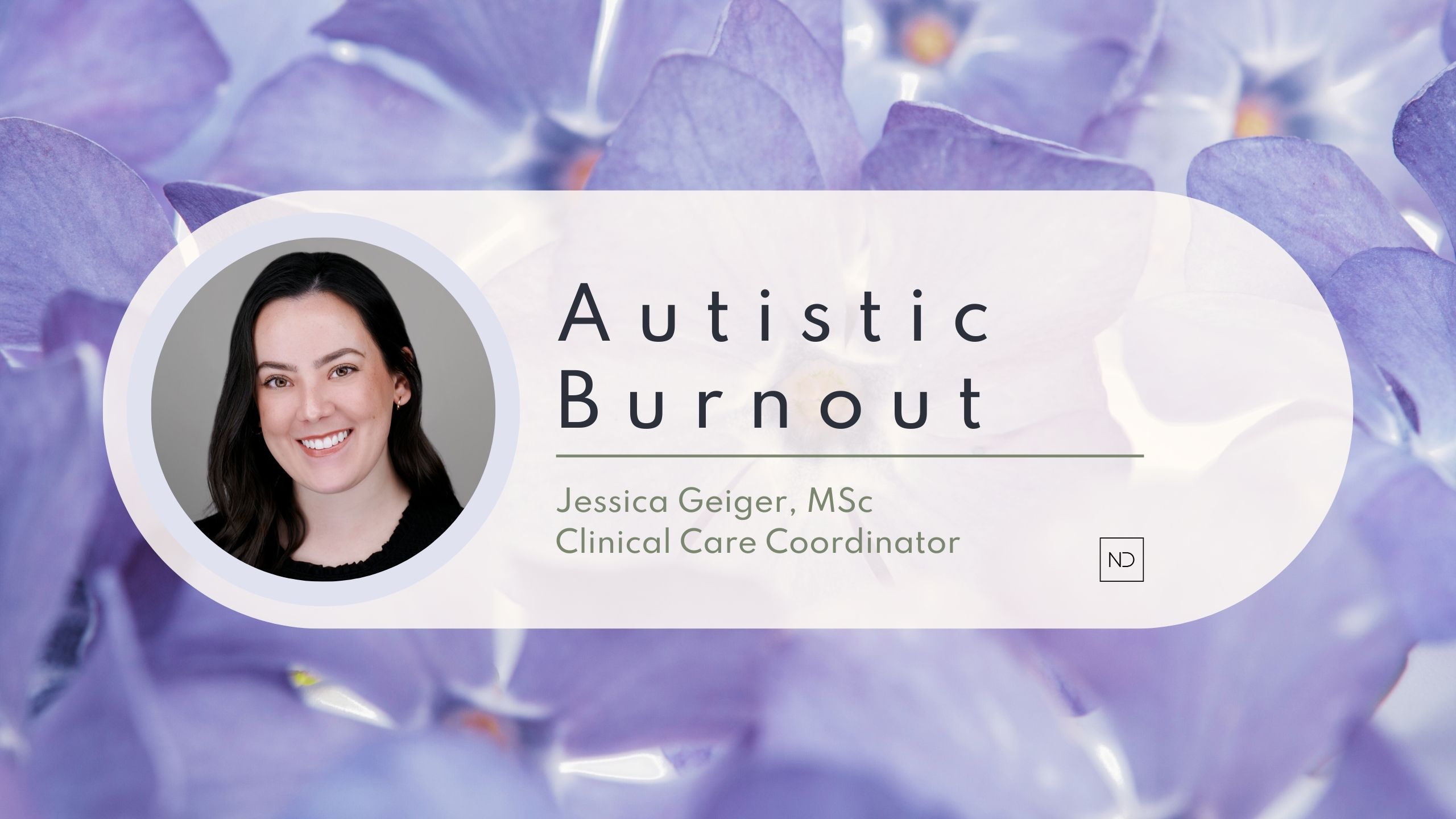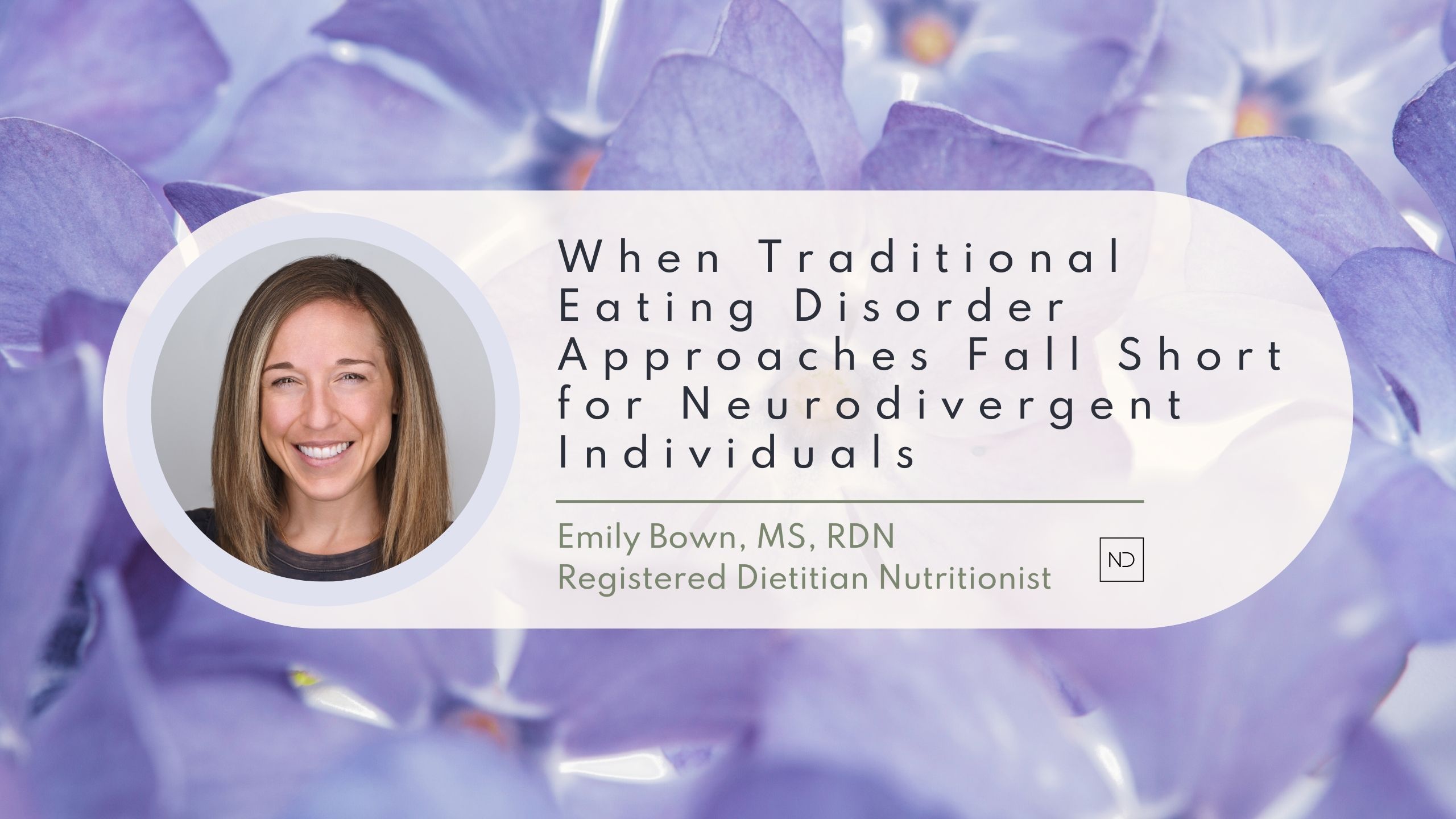
When Traditional Eating Disorder Approaches Fall Short for Neurodivergent Individuals
Written by: Emily Bown, MS, RDN
Eating disorder treatment has come a long way in recognizing the complexities of disordered eating. However, many standard approaches still fail to consider the unique needs of neurodivergent individuals, particularly those with sensory sensitivities and conditions like Avoidant/Restrictive Food Intake Disorder (ARFID).
The Missing Piece: Sensory Sensitivities and Food
For many neurodivergent people—especially those with autism, ADHD, or sensory processing differences—food is more than just nourishment. It can be an overwhelming experience. The texture, temperature, smell, and even the sound of certain foods can create intense discomfort, leading to avoidance behaviors that are often misinterpreted as disordered eating.
Traditional eating disorder treatments often focus on exposure-based techniques or challenging “food rules” and “fear foods.” While this may work well for individuals with anorexia or bulimia, it can be counterproductive for someone with ARFID or extreme sensory sensitivities. Pushing past sensory barriers without understanding their root cause can increase distress rather than encourage healing.
Why Traditional ED Approaches Aren’t Always Helpful for Neurodivergent Folks
- Lack of Sensory Awareness
Standard meal plans and exposure therapy might work for someone fearful of certain foods due to weight concerns, but they don’t address the deep-rooted sensory aversions common in ARFID and neurodivergent individuals. - Rigid Expectations Around Food Variety
Many ED treatments emphasize increasing food variety as a marker of progress. However, for someone with sensory sensitivities, a small number of safe foods may be crucial for maintaining adequate nutrition. Forcing rapid expansion can be overwhelming and ineffective. - Misunderstanding of Fullness and Hunger Cues
Many neurodivergent individuals struggle with interoception, or the ability to recognize internal bodily signals like hunger and fullness. Traditional approaches that rely on mindful eating or intuitive eating principles may not be accessible without adaptations. - Emphasis on Social Eating
Group meals and social eating are often a big part of ED treatment. However, many neurodivergent individuals experience significant discomfort in these settings due to sensory overwhelm, social anxiety, or executive functioning difficulties.
A More Inclusive Approach to Eating Disorder Treatment
So what can we do to better support neurodivergent individuals struggling with disordered eating? Here are a few key shifts in approach:
- Sensory-Informed Nutrition Therapy: Instead of forcing exposure to all foods, work within sensory preferences and gently expand in a way that feels safe and achievable.
- Neutral Language Around “Safe Foods”: Avoid framing safe foods as “wrong” or not good enough/ “healthy enough.” Instead, focus on making small, sustainable nutritional improvements.
- Flexible Meal Structures: Traditional “three meals and two snacks” approaches may not work for neurodivergent individuals who struggle with hunger cues. Instead, individualized, non-rigid eating patterns should be encouraged.
- Alternative Markers of Progress: Instead of focusing solely on food variety, measure progress in terms of overall nutritional adequacy, reduced distress around eating, and improved quality of life.
- Collaboration Between ED and Neurodivergent Specialists: Working with professionals who understand both eating disorders and neurodivergence can create a more effective and compassionate treatment plan.
Final Thoughts
Healing from disordered eating is not a one-size-fits-all journey. For neurodivergent individuals, a more sensory-aware, flexible, and individualized approach is crucial for true recovery. It’s time to challenge outdated treatment models and build a more inclusive path forward.
If you or someone you know is struggling with food sensitivities or an eating disorder, consider working with a provider who understands the intersection of neurodivergence and nutrition. Everyone deserves a treatment approach that truly meets their unique and individualized needs.
Do you have a question?
Send us a message


